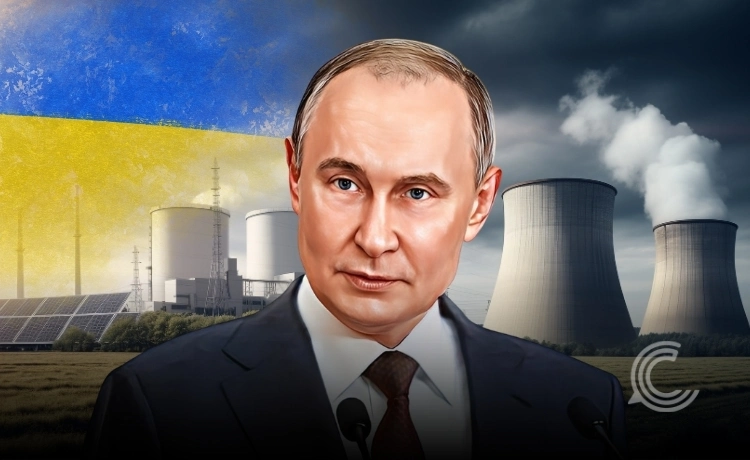Putin Highlights ‘Balanced’ Position in Orban-Moscow Talks

Key Points:
- Russian President Vladimir Putin and Hungarian Prime Minister Viktor Orbán met in Moscow on Friday, primarily to discuss securing Hungary’s long-term gas and oil supplies
- The meeting reinforced Hungary’s outlier position within the European Union, as the only member state continuing to import large volumes of Russian fossil fuels
- Both leaders discussed the ongoing Ukraine war, with President Putin praising Mr. Orban’s “balanced position” on the conflict
Hungarian Prime Minister Viktor Orban made a high-profile visit to Moscow on Friday, meeting with Russian President Vladimir Putin to address crucial issues surrounding Energy Security and the ongoing war in Ukraine.
The meeting comes at a critical juncture, highlighting the deep internal divisions within the European Union (EU) over sanctions and reliance on Russian fuel.
Focus on Energy Lifeline
Orban’s main objective for the trip was to secure affordable Russian oil and natural gas supplies for Hungary, a matter he views as vital for the nation’s economic stability. The nationalist leader has consistently argued that Russia remains the indispensable foundation of Hungary’s energy supply.
“I would like to reiterate that energy supplies from Russia form the basis of Hungary’s energy supply now and will remain so in the future,” Orban stated, sitting alongside the Russian President, as reported by Barrons. He claimed that Hungary maintains the lowest energy price in Europe thanks to its access to “cheap relative to international price levels” Russian gas and oil.
Securing a Sanctions Exemption
The timing of the meeting is particularly relevant, following Orban’s earlier success in Washington. Earlier this month, the Prime Minister met with U.S. President Donald Trump and secured a crucial one-year exemption from U.S. sanctions targeting Russian energy giants Lukoil and Rosneft.
This exemption became a key facilitator for the Moscow talks. Orban told state media before departing from Budapest, as reported by ClickOrlando.com, that after securing the U.S. sanctions exemption, “now all we need is oil and gas, which we can buy from the Russians. I am going there to ensure Hungary’s Energy Security at an affordable price both this winter and next year.” This move shields Hungary from some of the external pressure to cease Russian energy imports.
Ukraine; The Elephant in the Room
During the talks, the subject of the ongoing war in Ukraine inevitably arose. President Putin openly commended the Hungarian Prime Minister’s diplomatic stance.
“I know your balanced position on the Ukrainian issue,” President Putin told Orban, according to reporting by The Guardian. This praise refers to the Hungarian PM’s continued refusal to supply arms to Kyiv and his efforts to consistently block or frustrate EU decisions on tougher sanctions against Moscow. This position places Hungary at odds with the collective policy of the EU, where leaders are currently grappling with ways to continue supporting Ukraine amidst their own budgetary constraints.
EU Unity Under Strain
Orban’s Moscow visit marks his second trip since last year, cementing his position as President Putin’s closest political partner within the EU bloc. This continued engagement undermines the EU’s unified strategy of isolating Moscow in response to the conflict.
Hungary has also maintained and even increased its import volumes of Russian energy, further complicating the EU’s broader plan to phase out all Russian fossil fuels by the end of 2027. Critics argue that Budapest’s reliance on Russian Energy Security makes it vulnerable to Russian leverage and weakens the bloc’s overall sanctions effectiveness.
The Geopolitical Balancing Act
The reliance on Russian supplies, coupled with the recent sanctions exemption from the U.S., illustrates the difficult geopolitical balancing act Orban’s government maintains. His strategy, often framed domestically as a defence of “national sovereignty” and ensuring Energy Security for its citizens, involves actively navigating the competing interests of Moscow, Washington, and Brussels.
While Hungary argues that its landlocked geography necessitates pipeline deliveries from Russia, geopolitical analysts frequently point out that infrastructure alternatives exist. However, for Budapest, the political and economic calculus currently favors maintaining the long-standing, affordable supply arrangements with Russia. The continuation of this policy ensures a predictable flow of energy, even as it generates significant diplomatic friction with Hungary’s Western allies.
The outcome of this high-stakes meeting will be closely watched by EU capitals, as it sets a challenging precedent for bloc solidarity and future European Energy Security policy.



